US Urges UK To Designate IRGC As Terrorist Organization
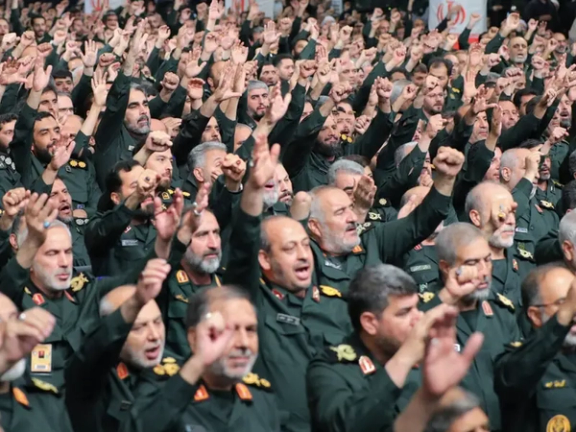
The United States has once again called on the United Kingdom to designate Iran's Islamic Revolutionary Guard Corps (IRGC) as a terrorist organization.

The United States has once again called on the United Kingdom to designate Iran's Islamic Revolutionary Guard Corps (IRGC) as a terrorist organization.
The move comes in the wake of allegations of Tehran's complicity in the war waged by Iran-backed proxy Hamas against Israel on October 7. In one day, thousands of Hamas terrorists brutally massacred at least 1,400 civilians in Israel, including babies and elderly, and at least 212 hostages from over 40 nationalities were abducted into Gaza.
The Biden administration has publicly urged its allies, including the UK, to join efforts in designating the IRGC as a terrorist organization due to its alleged involvement in terrorism on a global scale. The IRGC has been banned in the United States since 2019.
Matthew Miller, the spokesperson for the US State Department, said, "We absolutely think that other countries should designate the IRGC as a terrorist organization. It’s a position that we’ve made clear a number of times."
The move adds to the mounting pressure within the UK to proscribe the IRGC, as several members of the Conservative Party have publicly called for action. Additionally, Robin Simcox, the Government's counter-extremism tsar, described the continued legality of membership and support for the group as "unsustainable."
The US firmly believes that the IRGC is involved in numerous global attacks and top UK ministers and security officials such as the head of MI5, have reiterated the dangers posed by the Islamic Republic on British soil.
The IRGC was initially established as a custodian of Iran's 1979 revolution's ideological principles. Over time, it has transformed into a significant force, encompassing military, political, and economic aspects within the country.
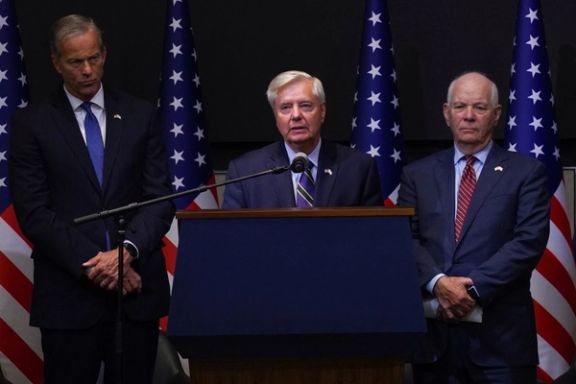
US Senator Lindsey Graham on Sunday accused Iran of involvement in the October 7 Hamas attack and warned that any escalation of the war could exact a cost from Tehran.
"We're here today to tell Iran: 'We're watching you. If this war grows, it's coming to your backyard,'" Graham starkly warned during a visit to Tel Aviv, without elaborating on what that meant.
Although the warning seemed to be directed at the Lebanese Hezbollah, which can open a northern front against Israel, any such decision needs to be approved by Tehran, the backer of all Arab militant groups in the region.
"The idea that this happened without Iranian involvement is laughable," Graham said in what was a rebuttal to the Biden administration that after the Hamas attack said there is no direct evidence of Iran’s involvement.
Although President Joe Biden has acknowledged Iran’s continuous support for Hamas and Hezbollah, he said last week that “Iran constantly supports Hamas and Hezbollah …. [but] did they have foreknowledge, did they help plan the attack, there’s no evidence of that at this point.”
Last week, speaking on NBC News Sen. Graham had issued a warning to Iran. He vowed to introduce a resolution in the Senate to allow “military action by the United States in conjunction with Israel to knock Iran out of the oil business.”
The Iranian regime has praised Hamas for its “heroic” attack, denying that the militants killed civilians, and pledging to continue support. Some Iranian hardliner lawmakers have even threatened direct involvement and the closure of the Hormuz Strait in the Persian Gulf if the United States directly intervenes to support Israel.
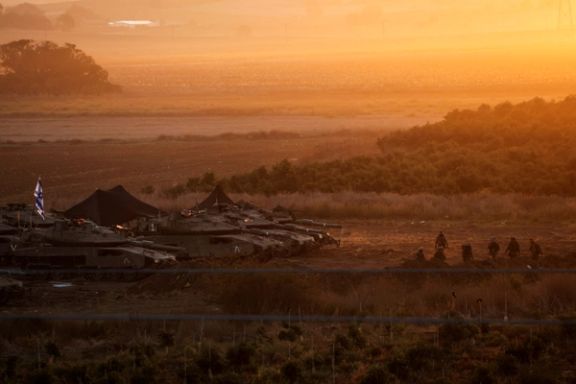
As regime officials continue to call for an escalation of Israel’s war against Iran-backed militant group Hamas, the country’s foreign minister rallied his counterpart in South Africa.
While he said the meeting was a follow up to the recent visit of President Ebrahim Raisi to South Africa in addition to discussions on bilateral relations, he used it as a chance to rally support under the banner of apartheid amid a battle against terror which threatens to become an Iran-driven proxy war.
Touching on the old wound of apartheid, Hossein Amir-Abdollahian told a press conference after meeting his counterpart Naledi Pandor: “Mr [Nelson] Mandela is widely recognized as a symbol of the struggle against apartheid, especially today, when the world witnesses the massacre by the illegitimate Israeli regime against the resilient and oppressed people of Gaza.”
Apartheid by its definition is a policy of segregation on the grounds of race or religion, as was seen in the black versus white policies of South Africa. In Israel, a multitude of faiths live together including Jews, Muslims, Christians, Druze and Baha’i.
Continuing the war cry, which has been loud and clear from the foreign minister and a wealth of other regime officials from the Supreme Leader and President to lawmakers, he once again warned of the explosive nature of the war declared by Hamas on October 7, which has incurred brutally devastating airstrikes in retaliation from Israel.
”From this tribune, I declare that today the region is like a powder keg,” said Amir-Abdollahian. “Any miscalculation in continuing the genocide and compulsory displacement can have serious and bitter consequences, both in the region and against the interests of warmongers,” referring to Iran’s multitude of proxies around the region baying for blood.
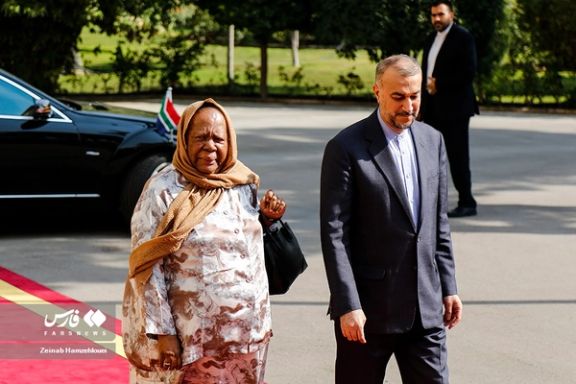
It comes just days after Pandor spoke with Hamas’ political head, Ismail Haniyeh, who rules from Turkey and Qatar. She told him of “South Africa’s solidarity and support” for the Palestinian people and “expressed sadness and regret for the loss of innocent lives on both sides”, causing domestic backlash from the South African Jewish community which accused her of siding with the terror proxy.
Fearing Iranian interference, the US and UK have mobilized warships and support for Israel after the attacks of October 7 which left at least 1,400 civilians dead and has seen over 300 more soldiers killed.
Israel’s harsh response as it vows to wipe out Hamas, has led to thousands more Palestinians dead and around 750,000 displaced as the proxy’s war continues to strangle the people of Gaza.
US Defense Secretary Lloyd Austin announced on Sunday that after detailed discussions with President Joe Biden on recent escalations by Iran and its proxy forces across the Middle East, he had directed a series of additional steps to further strengthen the Department of Defense posture in the region.
In the announcement on X, he said: “These steps will bolster regional deterrence efforts, increase force protection for U.S. forces in the region, and assist in the defense of Israel. I will continue to assess our force posture requirements in the region and consider deploying additional capabilities as necessary.”
While airstrikes in Gaza continued to target Hamas infrastructure and leadership, buried deep in civilian heartland from mosques to hospitals, in neighbouring Syria, where Iran has a military presence, Damascus and Aleppo international airports were hit once again in the early hours of Sunday, putting both out of service and killing two workers.
A key route for Iranian weaponry and other military shipments into the region, disabling Syrian infrastructure has been an ongoing shadow war for Israel in its battle to keep its borders safe from Iran. During Sunday morning’s Israel Defence Forces press briefing, its spokesman typically claimed he could not comment.
On Israel’s northern border, further clashes came from Iran’s biggest regional proxy, Hezbollah, which had terrorists killed during attempted infiltrations and attempted UAV and anti-tank missiles fired during Sunday.
It has become the most deadly escalation between Israel and Lebanon since the 2006 Israel-Hezbollah war. Hezbollah said four fighters were killed in heavy exchanges of fire on Sunday and another died of wounds sustained earlier, raising to 24 the number of its members killed since October 7.
Lebanese security sources said 11 fighters with Palestinian militant groups in Lebanon had also been killed in the volatile border region, alongside four civilians. At least five Israeli soldiers and one civilian have been killed on Israel's side of the frontier, according to Israeli military reports.
A further 14 villages have also been evacuated and 120,000 Israelis from both north and south are now in evacuation facilities.
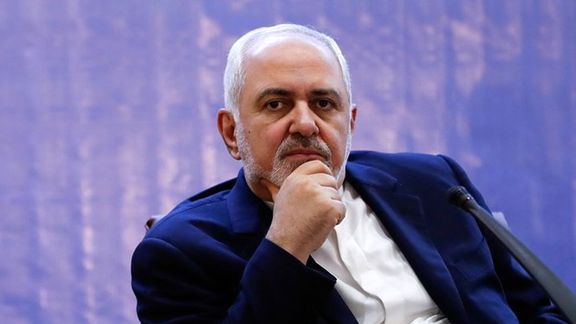
Iran's former Foreign Minister Mohammad Javad Zarif claims the next two years will be a pivotal and sensitive period for the nation as it moves beyond sanctions.
Emboldened as the United Nations Security Council lifted its ban on Iran’s missile program, removing barriers for the clerical regime to sell dangerous technologies, he said that by the year 2025, Iran will no longer be under consideration by the United Nations Security Council, rendering the reinstatement of resolutions improbable.
Zarif said in a recent interview with the semi-official ISNA news agency that "starting from 2025, any country desiring to propose a resolution against Iran must adhere to the established process for such matters."
The United Nations has recently conveyed to various nations the removal of restrictions on Iran's missile program, effectively eliminating impediments that prevented the Iranian government from engaging in the sale of potentially dangerous technologies.
In a UN letter, it was conveyed that “The Secretariat removed on 19 October 2023 from the Security Council website the list of 23 individuals and 61 entities subject to the aforementioned restrictive measures.”
The action marked the termination of all provisions outlined in Annex B of UN Security Council Resolution 2231, which had previously restricted activities such as missile development, testing, and military applications. Resolution 2231 had previously endorsed the 2015 nuclear agreement between Iran and the P5+1 countries.
With these restrictions lifted, Iran is now legally able to generate revenue through the sale of missiles and drones. The profits may subsequently be utilized to fund various militant and terrorist groups across the Middle East, which could potentially lead to heightened instability and conflict in Eurasia and, potentially, Africa.
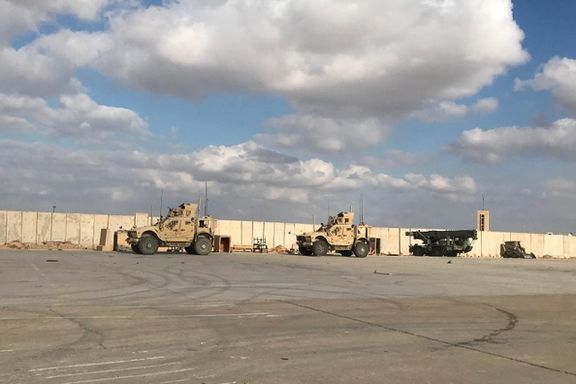
Fars News Agency affiliated with Iran's Revolutionary Guard has reported another attack on the Ain al-Asad airbase in Iraq hosting US troops, by militia forces.
The unconfirmed attack, carried out using a combination of drones and rockets, seemingly targeted American military personnel stationed at the base, as reported by Iran-affiliated Al Mayadeen news network.
Washington and official Iraqi sources have not reported any attack taking place on Saturday.
Simultaneously, another military base housing US forces near Baghdad's international airport also faced rocket attacks, Al Mayadeen added.
Iran-backed Islamic Resistance of Iraq has claimed responsibility for the attack, according to Fars, emphasizing that it was executed with “precision, hitting its intended targets.”
There were already attacks in recent days against US bases in both Iraq and Syria.
The alleged attack follows earlier warnings from Iraqi militants aligned with Iran against potential US intervention in support of Israel during the conflict with Hamas in Gaza. In the past 48 hours, this marks the fifth attack on Iraqi military bases hosting US forces.
The United States maintains approximately 2,500 troops in Iraq and an additional 900 in Syria. The troops are primarily engaged in advising and assisting local forces in the fight against the Islamic State, which seized significant territory in both countries in 2014.
Ain al-Asad airbase, the target of the attack, is situated in the western Anbar province of Iraq.
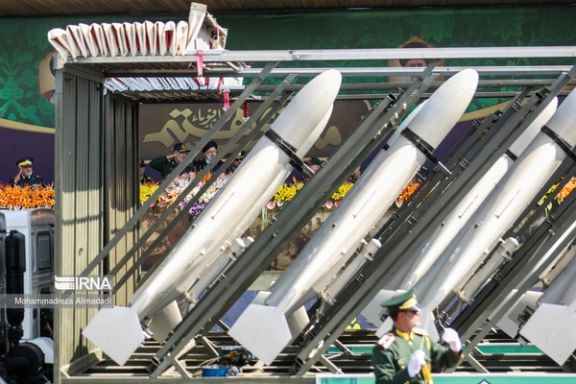
The UN has sent letters to countries announcing end of bans on Iran’s missile program, removing barriers for the clerical regime to sell dangerous technologies.
“The Secretariat removed on 19 October 2023 from the Security Council website the list of 23 individuals and 61 entities subject to the aforementioned restrictive measures,” read the UN letter, terminating all provisions of Annex B of UN Security Council Resolution 2231 that prohibited activities such as development, tests, military employment, and others. The resolution endorsed Iran’s 2015 nuclear deal (JCPOA) with P5+1 (the five permanent members of the Council -- China, France, Russia, United Kingdom, United States, plus Germany).
“All it takes is one letter” to the UN Security Council by parties of the JCPOA to keep checks and balances on Iran’s drones and missiles, Behnam Ben Taleblu, a senior fellow at US-based think-tank the Foundation for Defense of Democracies (FDD) tells Iran International.
The hypothetical letter would start a 30-day clock for a different party to put forward a resolution to prove Iran’s compliance with the defunct deal signed with P5+1 (the five permanent members of the Council -- China, France, Russia, United Kingdom, United States, plus Germany). If the evidence for Iran’s non-compliance is clear, a snapback mechanism would crumble the foundations of UNSCR 2231 resolution, practically end the JCPOA and restore six resolutions imposed on Iran from 2006 to 2010 as well as all their prohibitions and penalties.
The US and nearly 50 other countries dusted off a 20-year-old program on weapons of mass destruction as well as issuing further missiles-related sanctions on Iran and the three European parties of the JCPOA, the so-called E3, announced in September that they would keep their sanctions in place. But no letter for a snapback.
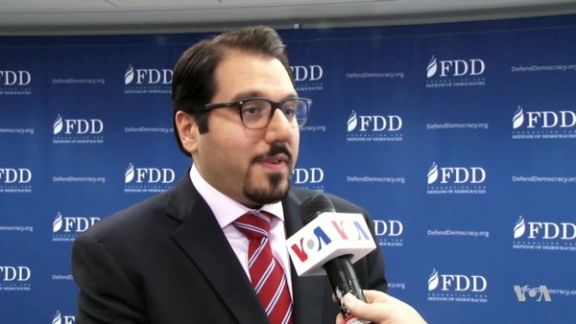
Taleblu says unless Iran starts stockpiling weapons-grade uranium, these countries will not pursue a snapback mechanism. “Despite the recently lapsed UN prohibitions on Iranian missile testing and transfers, snapback still remains an option and should be considered an option. Legally under UN Security Council resolution 2231, snapback will remain an option until the fall of 2025. That means that the US or the E3 can still snap back and restore older multilateral penalties on Iran’s nuclear, missile and military program. And yes, all it takes is a letter from one of these JCPOA participants to the president of the UN Secretary Council and to run a 30-day clock,” Taleblu added.
On the Termination Day of the JCPOA, which will occur 10 years after Adoption Day (i.e. in 2025), the remaining EU measures will be terminated, the UNSC will conclude consideration of the Iran nuclear issue and UNSC resolution 2231 (2015) will be terminated.
Now that the prohibitions are lifted, Iran can now make money legally from its missile and drone sales and then can use the profits to finance its militant and terror proxies in the Middle East. The more chaos and destruction across Eurasia and perhaps Africa, the more Iran can find markets for its products. It can look for new buyers, who no longer face international consequences for their arms trade with Iran.
According to Taleblu, one of the more imminent perils is Iran selling ballistic missiles and related long-range strike technologies to Russia. Tehran has been providing President Vladimir Putin with a platter of miscellaneous drones, but not ballistic missiles. Russia has grown close to Iran since invading Ukraine in February 2022 and would likely use the easier flow of missiles to facilitate its invasion. Many of the hundreds of one-way attack drones it has used to bomb Ukraine in the last year were Iranian made.
“It is absolutely true that Iran did violate even arms transfer prohibitions prior to them expiring in 2020, however, thus far Iran has not given ballistic missiles to Russia,” he said, arguing that Iran waited for these US measures to end so that it can trade its missiles in broad daylight.“It is my contention that Iran was waiting for these international prohibitions to lapse to more seriously consider supplying Russia with ballistic missiles. Iran wants some of its arms transfers to not be penalized by the West and considered legal,” Taleblu said.
In addition to Russia, Iran will try to sell its missiles and drones to all its anti-West allies. Taleblu believes Iran’s leftist allies in the Americas as well as new Asian markets may be the prospective destinations of Iran’s drones and missiles.
In terms of customers for Iran’s long-range missiles or drones, “Venezuela is a growing industry.” He added that Bolivia is also a potential buyer while Belarus also offers a possible niche market. “The most acute and the most dangerous” remains the sale of Iran’s close-range ballistic missiles to Russia to help the invasion of Ukraine. “That will be a game changer and a record breaker for the history of Iranian arms proliferation as well as a game changer in the Russo-Iranian relationship.”
“The Islamic republic is an ideological actor committed to the export of the revolution, committed to keep developing a nuclear weapon, committed to protecting and defending its proxies and partners through illicit arms exports. This is a fact. Legal, political, normative and international prohibitions can hinder or name and shame it, but there is no such thing as a magic bullet.”
“Snapback matters because it sets a multilateral and international legal baseline for pressure against Iran.”